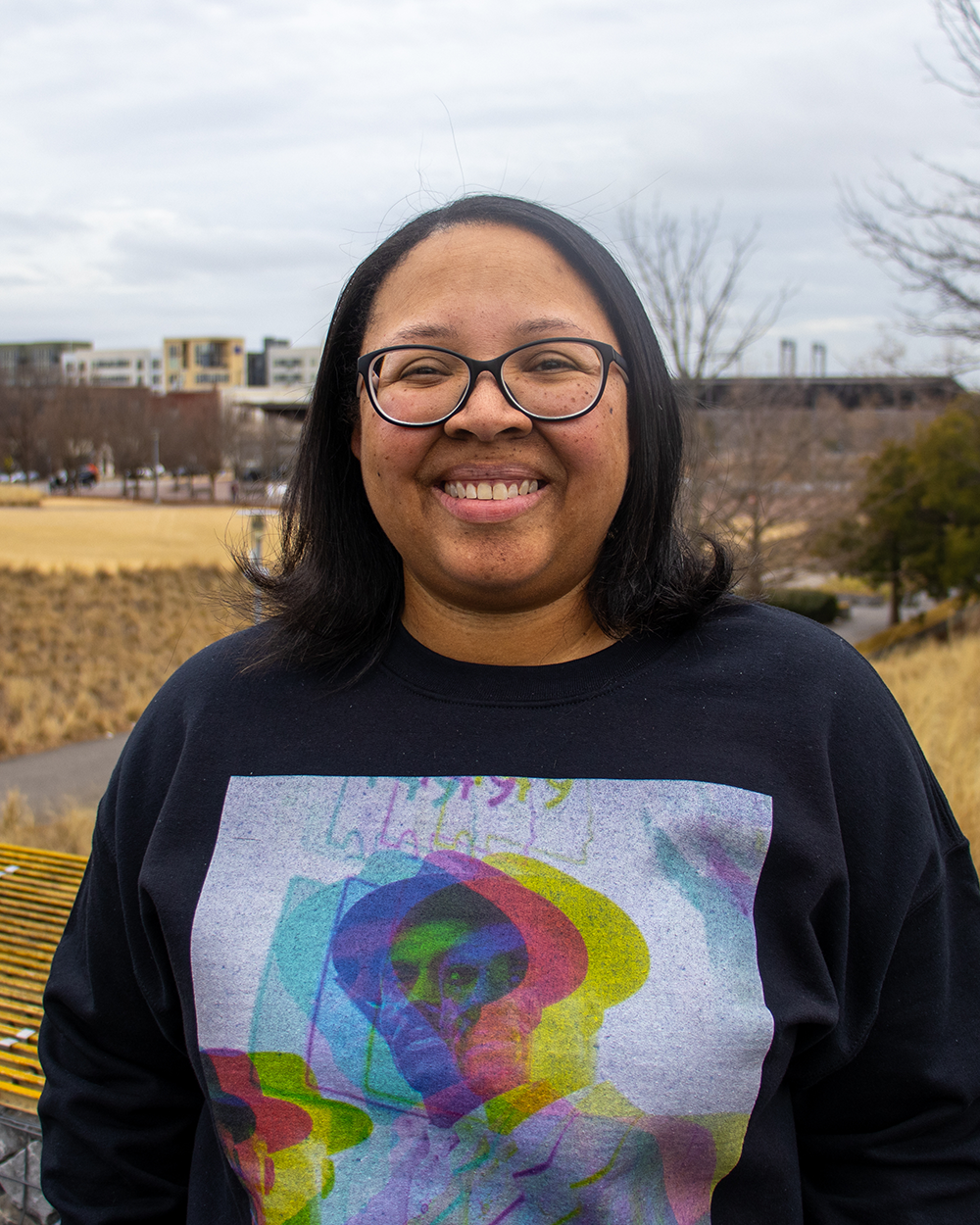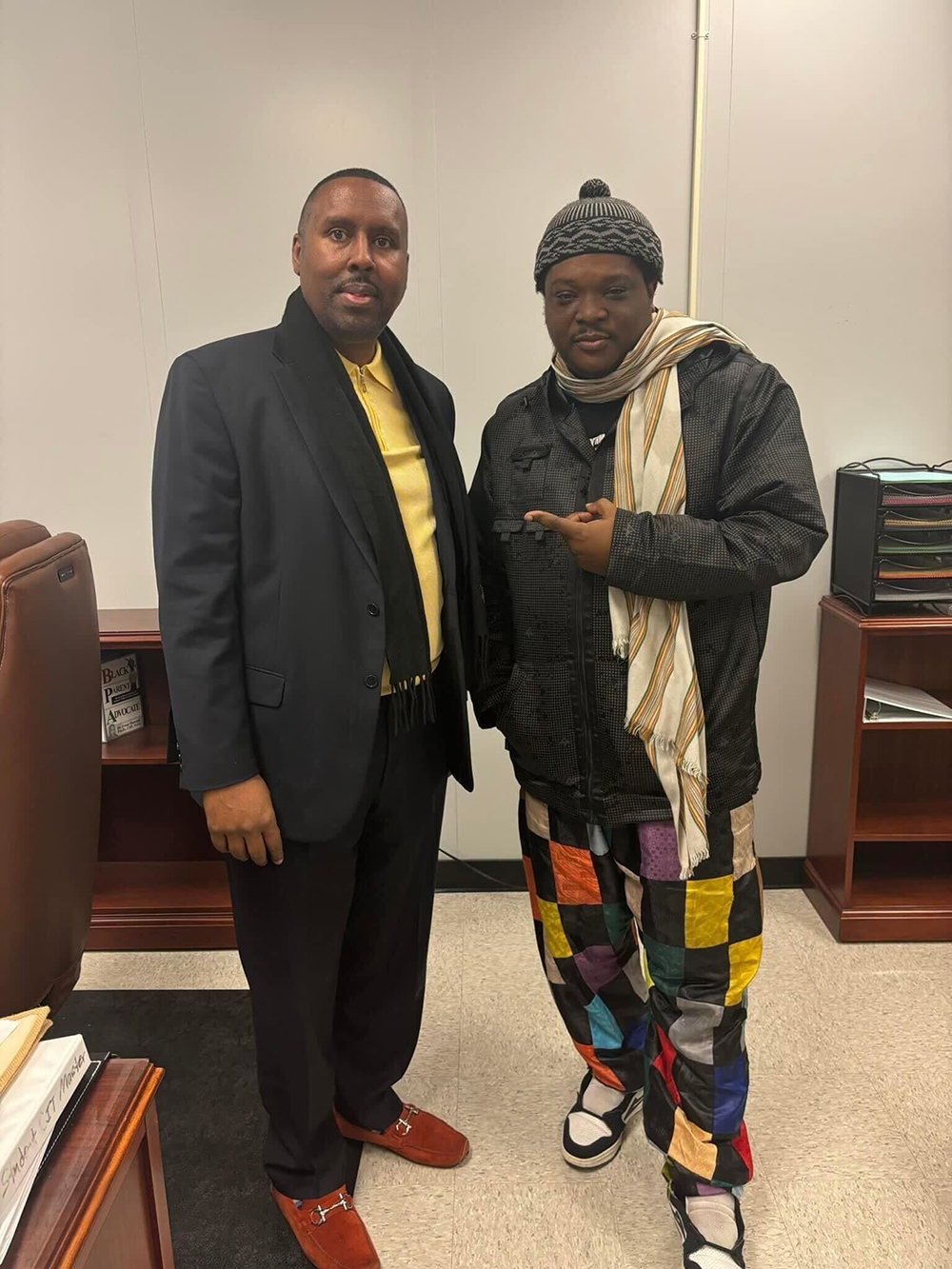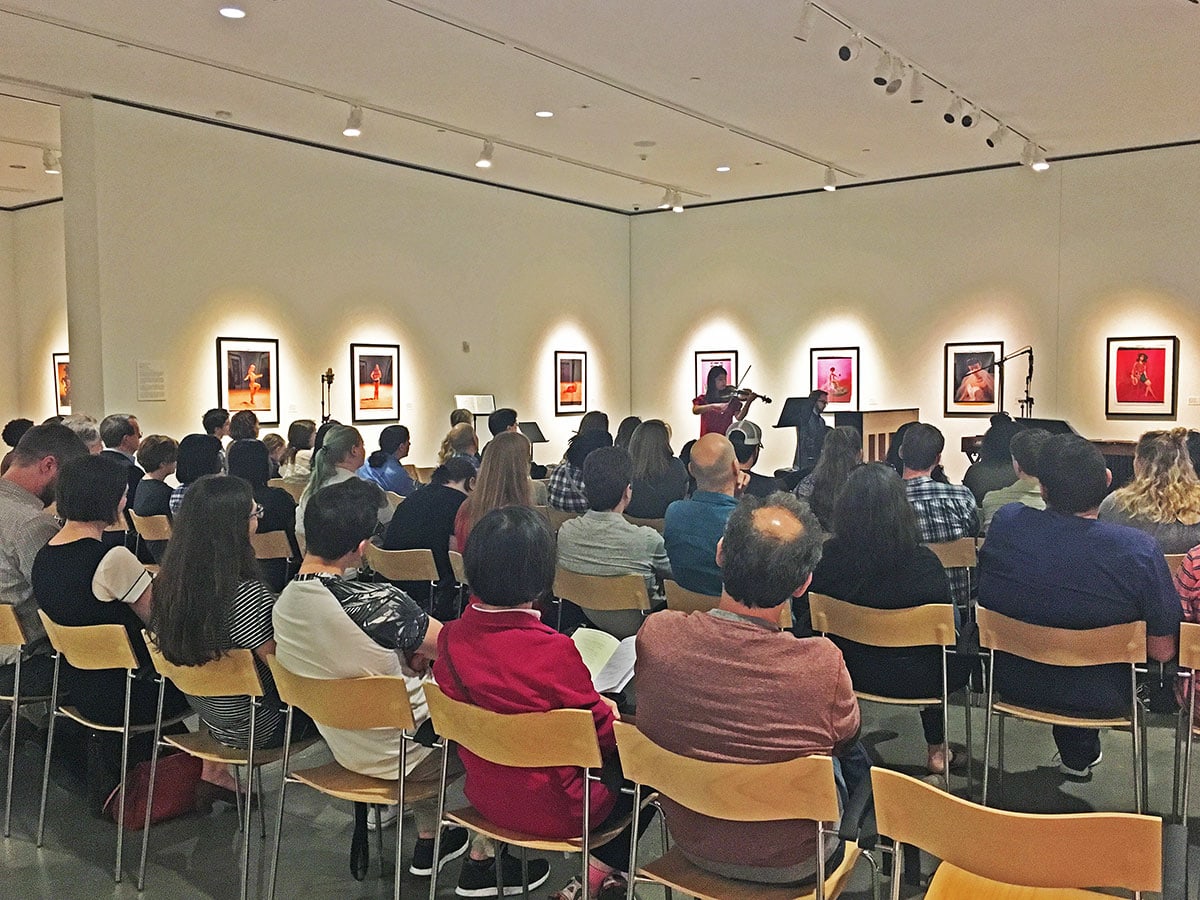The sights and sounds of popular culture have long influenced society. With that in mind, the African American Studies program in the University of Alabama at Birmingham’s College of Arts and Sciences includes courses examining the lasting impact of music, movies, and television, from depictions of racial stereotypes to expressions of cultural pride.
Here is a look at a few of the courses being offered within the program:
Film and television
 T. Marie King
T. Marie King
Many moviegoers in 1967 were stunned by a scene in the film In the Heat of the Night showing an African American man, played by Sidney Poitier, slapping a white character and not being punished for it. This was in the midst of the 1960s Civil Rights movement, and such a defiant action by a Black person still was a rare sight in popular culture.
Local filmmaker and social justice worker T. Marie King examines the importance of such moments—and the overall impact movies and television have had on the African American community—through her courses “Black Image: Screen and Television” and “Race and Representation in Media.”
“We view society based on the information we’re taking in, and we all have different ways that we get that information.” said King, who produced a documentary on Birmingham Civil Rights activist Rev. Fred Shuttlesworth in 2022 and is programmer for the Black Lens series at the annual Sidewalk Film Festival. “So how do we understand a culture or a demographic of people when our only view of them is through television and film, or these days, social media? I want students to think more critically about what we take in, and how we decipher that information.”
To literally illustrate these points, King shows movie and TV clips to her students, ranging from old sitcoms to historical films such as 4 Little Girls, a documentary about Birmingham’s 16th Street Baptist Church bombing of 1963. Kings says her class attended a showing of 4 Little Girls at Sidewalk last year held in conjunction with the 60th anniversary of the tragedy, then participated in a Q&A session with Lisa McNair, sister of bombing victim Denise McNair.
“The students knew about the bombing, but they weren’t really connected to it,” said King. “But after seeing the film and hearing Lisa McNair they were like, ‘Wow, that happened just a few blocks from our school.’ It started some deep conversations.
“I want to challenge students to think outside of whatever their box is. My hope for these classes is to expand that limit for students and get them to think more critically about what they’re watching and why they’re watching it. To do that within the backdrop of Birmingham is a way to overlap media and society and show that what’s going on in society impacts what we view, and our response to what we view can impact society.”
Music and more
 Dr. Jeffrey Moore and Shaheed TawheedApproximately 100 years after African Americans created a musical form of expression that later became known as the blues, another genre of music rose from the predominantly Black sections of U.S. cities. It was dubbed hip hop, and it remains a driving cultural force in the African American community.
Dr. Jeffrey Moore and Shaheed TawheedApproximately 100 years after African Americans created a musical form of expression that later became known as the blues, another genre of music rose from the predominantly Black sections of U.S. cities. It was dubbed hip hop, and it remains a driving cultural force in the African American community.
Jeffrey Moore, Ph.D., is a Birmingham-based clinical researcher and school psychologist who has worked with a variety of hip hop artists. In addition to teaching a general “Black Psychology” course at UAB, Moore has expanded his instruction to include “The Psychology of Hip Hop.”
“Hip hop is so closely associated with the African American community and how it’s shaped by a variety of social and cultural factors including race, class, and gender,” said Moore. “In studying hip hop, we’re able to look at the psychological effects of listening to the music, the ways that the lyrics reflect the experiences and values of the artists performing it, and the role that hip hop culture plays in shaping the identity of social behavior.”
Moore says he often is joined by local hip hop artist Shaheed Tawheed. The two of them will lead class discussions about not only the origins and history of hip hop, but also on offshoots of the genre such as DJing and graffiti.
“We dig into the entire culture around hip hop,” said Moore. “We talk about how it’s a form of empowerment, and how it interacts with personal experiences. It’s robust the information the students get and how they can apply it to real life.”
Moore’s professional experience is far from one note. He has operated a counseling-service agency in the Birmingham area for nearly 20 years, and since 2017 has run a non-profit initiative called “Brother Let’s Talk,” which is aimed at helping men and teenage boys who are dealing with mental health issues but are reluctant to seek therapy.
“We look at a lot of those issues in the Black Psychology class, about the stigmas and barriers in mental health,” said Moore. “We get into the mindset of how we think and what we do in the African American community.
“Because this culture is embedded into so many things, these classes are not just for African Americans or people in psychology. They’re for anybody who wants to have better insight and understanding of the African American culture, and to get a different perspective of how people within that community see life.”


